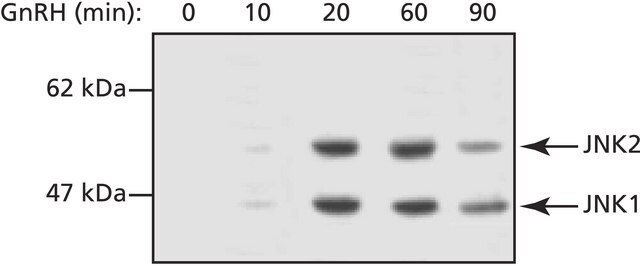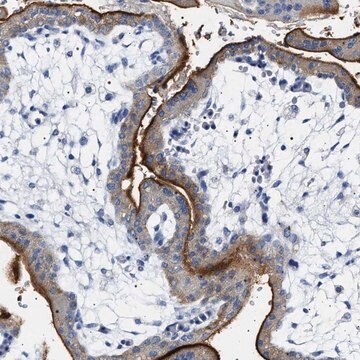MABS1910
Anti-Signal peptide peptidase-like 3 Antibody, clone 7F9
clone 7F9, from mouse
Synonym(s):
Signal peptide peptidase-like 3, SPP-like 3, Intramembrane protease 2, IMP-2, Presenilin homologous protein 1, PSH1, Presenilin-like protein 4
About This Item
Recommended Products
biological source
mouse
Quality Level
antibody form
purified immunoglobulin
antibody product type
primary antibodies
clone
7F9, monoclonal
species reactivity
human
packaging
antibody small pack of 25 μg
technique(s)
immunoprecipitation (IP): suitable
western blot: suitable
isotype
IgG1κ
NCBI accession no.
UniProt accession no.
shipped in
ambient
target post-translational modification
unmodified
Gene Information
human ... SPPL3(121665)
General description
Specificity
Immunogen
Application
Signaling
Immunoprecipitation Analysis: A representative lot detected Signal peptide peptidase-like 3 in Immunoprecipitation applications (Voss, M., et. al. (2012). J Biol Chem. 287(52):43401-9).
Quality
Western Blotting Analysis: 1 µg/mL of this antibody detected Signal peptide peptidase-like 3 in HEK293 cell lysate.
Target description
Physical form
Storage and Stability
Other Notes
Disclaimer
Not finding the right product?
Try our Product Selector Tool.
Storage Class Code
12 - Non Combustible Liquids
WGK
WGK 1
Flash Point(F)
does not flash
Flash Point(C)
does not flash
Certificates of Analysis (COA)
Search for Certificates of Analysis (COA) by entering the products Lot/Batch Number. Lot and Batch Numbers can be found on a product’s label following the words ‘Lot’ or ‘Batch’.
Already Own This Product?
Find documentation for the products that you have recently purchased in the Document Library.
Our team of scientists has experience in all areas of research including Life Science, Material Science, Chemical Synthesis, Chromatography, Analytical and many others.
Contact Technical Service







